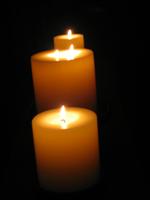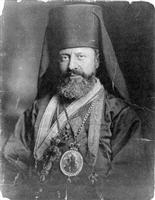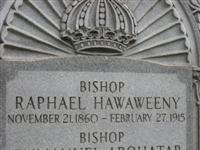 If presented with a choice of reading an article on spirituality or one on theology, most Americans would probably prefer reading about spirituality. Maybe they think of spirituality as something to be experienced while theology is an academic subject that is studied. In reality, theology and spirituality are intertwined. Spirituality may be understood as our relationship with God. Theology is knowing God. The only way we can know God is through experience. We experience God within a relationship. We can study theological ideas about God, but to really know God and become true theologians we must encounter him through an intimate spiritual experience.
If presented with a choice of reading an article on spirituality or one on theology, most Americans would probably prefer reading about spirituality. Maybe they think of spirituality as something to be experienced while theology is an academic subject that is studied. In reality, theology and spirituality are intertwined. Spirituality may be understood as our relationship with God. Theology is knowing God. The only way we can know God is through experience. We experience God within a relationship. We can study theological ideas about God, but to really know God and become true theologians we must encounter him through an intimate spiritual experience.Some people think of theologians as professors who write complicated books and long philosophical articles published in Latin-titled journals. My priest once explained to me that a theologian is one who prays. The only way to know God is through prayer. Only three Saints in the Orthodox Christian Church are called theologians: St. John the Theologian (the Apostle), St. Gregory the Theologian, and St. Symeon the New Theologian. These men are theologians, not because they studied theological ideas or wrote philosophical works, but because they practiced theology as a way of life. They knew God by living a life of prayer within the Church, the mystical body of Christ. They could eloquently express theology in words because they experienced the divine life.
While intellectual knowledge from schools and books can tempt a person to become arrogant, proud, and overly confident in his (or her) own understanding, the true theologian encounters everything in creation with humility and love. Aware of his own imperfection, the theologian lives a dynamic life of repentance and healing by divine grace. The true theologian immerses himself in the Mystery of the Church and lives the spiritual way of life. He seeks purification, enlightenment, and union with God. Theology isn't just a collection of information aimed at explanation. Theology is the path of personal transformation. The image of God within us is restored and we are transformed into the likeness of Christ, who shines with divine brilliance.
One of my professors said something like this recently, perhaps quoting from another source: "Orthodox theologians are concerned with the spiritual health of people, not with theological discussion and arguments separated from the care of souls." This is the kind of theologian I hope to be, one who personally knows God and is healed within the mystical relationship for the benefit of others, that they may also know God and be healed, restored, and transformed into the divine likeness.
Lord, have mercy on me. Help me to be a theologian.
Copyright © 2006 by Dana S. Kees. Photo © 2006 by Dana S. Kees. My collection of class notes for a current course on theology has been a source for the last three paragraphs. Information on the lives of the Saints (links provided) is available on the websites of the Greek Orthodox Archdiocese of America and the Greek Orthodox Archdiocese of Australia.
 "Rejoice, O Father Raphael, Adornment of the Holy Church! Thou art Champion of the true Faith, Seeker of the lost, Consolation of the oppressed, Father to orphans, and Friend of the poor, Peacemaker and Good Shepherd, Joy of all the Orthodox, Son of Antioch, Boast of America: Intercede with Christ God for us and for all who honor thee." - Troparion of St. Raphael
"Rejoice, O Father Raphael, Adornment of the Holy Church! Thou art Champion of the true Faith, Seeker of the lost, Consolation of the oppressed, Father to orphans, and Friend of the poor, Peacemaker and Good Shepherd, Joy of all the Orthodox, Son of Antioch, Boast of America: Intercede with Christ God for us and for all who honor thee." - Troparion of St. Raphael
